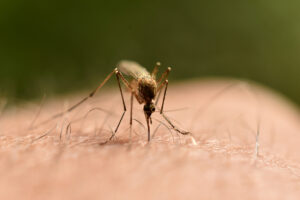 HYANNIS – While it’s important for just about everyone to get vaccinated against the flu, it’s especially vital for diabetics, who should also receive the pneumococcal vaccination.
HYANNIS – While it’s important for just about everyone to get vaccinated against the flu, it’s especially vital for diabetics, who should also receive the pneumococcal vaccination.
“Their immune system is not as strong as people without diabetes,” said Debbie Allietta, R.N., certified diabetes educator for the Visiting Nurse Association of Cape Cod. “If someone with diabetes does get the flu, they’re probably going to be sicker.”
People with diabetes have difficulty controlling their blood sugar levels. In Type 1 diabetes, which is about 5 percent of people with diabetes, their pancreas doesn’t make insulin. In Type 2 diabetes, which is about 90 to 95 percent of people with diabetes, there is an insulin deficiency and their cells don’t use insulin properly, according to the American Diabetes Association. Insulin is a hormone made by the pancreas that allows the body to use sugar (glucose) from carbohydrates in the food that we eat.
The Centers for Disease Control and Prevention says flu can make a person with diabetes’ blood sugar soar to dangerous levels, put them at risk of pneumonia and other respiratory infections, and worsen other chronic health problems, which are common among elderly patients and people with diabetes. Therefore, the federal health institute also recommends that people who have diabetes get vaccinated for bacterial pneumonia. This vaccine is also recommended for people over 65. There are two varieties of the vaccine, conjugate and polysaccharide, and your doctor can discuss with you which to get.
Once sick with the flu, people with diabetes may get in serious trouble because they may be less likely to eat properly or check their blood sugar every four hours, said Allietta. Their blood glucose could go very high in a 24-hour period.
Rising blood sugar can cause kidneys to go into overdrive to try to excrete the excess sugar via urination, she said. This can lead to dehydration, which can exacerbate chronic health conditions such as hypertension and kidney problems.
“They really could be risking their life,” Allietta said.
[RELATED: Flu season is here and it could be a nasty one]
Fever, aches, chills, headache, chest discomfort and a cough are common flu symptoms, according to the CDC. Sneezing, sore throat and stuffy nose are less common, and vomiting and diarrhea affect children more often than adults. Unlike a cold, onset of symptoms is usually rapid rather than gradual, as it is with a cold.
What To Watch For
Anyone with diabetes should receive a flu shot annually. There is still time to get one to help prevent the illness this season. Should you come down with the flu, the CDC offers these guidelines for diabetics who are sick with flu-like symptoms:
- Take your diabetes pills or insulin, even if you can’t eat. Your doctor may advise you to take even more insulin, if necessary.
- Test your blood sugar every four hours, and track results.
- Drink extra water or calorie-free liquids, and try to eat your normal diet. If you can’t handle solid foods, try soft foods or liquids with a similar amount of carbohydrates.
- Weigh yourself every day. Persistent high blood glucose levels can cause weight loss.
- Check your temperature every morning and evening. A fever may mean infection.
Call your doctor or go to an emergency room if any of these occur to you:
- Too sick to eat normally and can’t keep food down for more than 6 hours.
- Severe diarrhea.
- Loss of five or more pounds.
- Temperature over 101 degrees F.
- Blood glucose lower than 60 mg/dL or remains over 250 mg/dL on two checks.
- Moderate or large amounts of ketones in urine. According to the Joslin Diabetes Center, ketones are produced by diabetics’ livers from fat when there’s not enough insulin to process glucose in the blood.
- Trouble breathing.
- Feel sleepy or can’t think clearly.
If a person with diabetes thinks they may have the flu, are running a high temperature, or having rapid blood sugar changes, they should call their doctor, Allietta said.
























